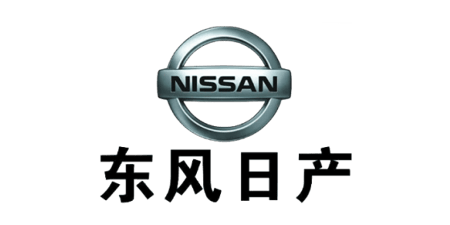
Client:Dongfeng Nissan
Industry:Manufacturing
Region:Asia Pacific & Japan
China’s Dongfeng Nissan Turns to UiPath for Ambitious Digital Transformation Program

13,221
hours saved/year
400
employees trained
126
processes
Client Overview
Dongfeng Nissan is a major producer of passenger motor vehicles in China under the Nissan marque. The company has an annual output of more than 1.5 million vehicles assembled at various locations across China. The firm has its headquarters and principal design center in Huadu, Guangzhou, southern China, and employs more than 19,000 staff.
With keen competition in the China market, Dongfeng Nissan has embarked on an ambitious digital transformation program aimed at improving efficiency and speeding time to market for a line of new vehicles. These include both conventional and electric-powered cars.
In 2019, Dongfeng Nissan launched its digital transformation strategy to promote the better use of data to streamline its internal business operations, improve existing workflows, and promote overall efficiency.
As part of the program, the car maker chose UiPath for its robotic process automation (RPA) software and its ability to automate repetitive digital tasks.
The technology was adopted, in part, because the firm’s parent company, Nissan Motor, has also deployed similar technology since 2017. It already had an in-depth understanding of RPA and its application to automobile manufacturing.
Dongfeng Nissan assimilated the experience of its parent company and avoided any potential pitfalls. Key priorities included:
Building a company-level center of excellence (CoE) team and defining its responsibilities
Setting up a standardized system model before RPA could be fully introduced
Empowering the technology and adopting a “democratization of RPA development” system
The CoE team consists of professionals from its digital transformation office, IT department, and leaders from different business units. Together they worked to implement RPA company wide to realize business automation across different scenarios. To date, Dongfeng Nissan has been able to implement 87.11% of its RPA process work internally.
Dongfeng Nissan has also implemented a lot of pilot projects to further promote RPA applications. In its manufacturing business unit, leaders and staff are encouraged to investigate the best way to leverage RPA to improve overall workflow and efficiency. They started by defining business areas to be optimized, followed by standardizing the system, and then implemented the automation strategies and closely tracked the results.
The RPA technology can be used to emulate how humans read computer screens, through UiPath AI Computer Vision. AI Computer Vision can then be combined with application program interfaces (APIs) to automate clerical processes in the back office.
In accounting, RPA can be used for invoice processing and expense claims. Manual forms are fed into a system and RPA can automatically sort and process them, including generating reports. Similarly, UiPath can be applied to human resources and purchasing. Newer applications include coordinating with artificial intelligence (AI) systems to simplify repetitive front-office tasks such as customer management.
Democratizing RPA motivates employees to create value for the company
Dongfeng Nissan has introduced RPA in eight key business areas, covering 126 RPA processes and has saved 13,221 work hours annually. More than 400 staff have been trained. Feedback from staff has been positive, with many of them commenting that:
RPA is more than a process automation tool. It’s a way to organize and standardize our system.
RPA projects have broadened our horizons and paves the way for future applications.
RPA project implementation allows new skillsets to be applied to improve business operations in other areas.
RPA boosts business efficiency through integrations
The RPA system has been applied across Dongfeng Nissan’s R&D, manufacturing, sales and marketing, finance, and human resources functions. The system encourages employees to further explore the potential to integrate AI, optical character recognition (OCR), and natural language processing (NLP) into business automation.
The RPA deployment at Dongfeng Nissan focuses on data collection and automation. The company is expected to integrate RPA with independent analytics tools in various business areas. It also plans to increase the scale of deployment to generate business value and further promote digital transformation of the company.
UiPath RPA is one of the best tools for business managers. They understand the pain points in their operations and can easily deploy RPA to quickly improve work efficiency. The design of RPA is based on process automation making it easy to optimize any repetitive job. We are very satisfied with the results achieved.
Chai Yi-cui • Director of Center of Excellence at Dongfeng Nissan
Related case studies
Ready for your own case study?
Speak to our team of knowledgeable experts and learn how you can benefit from agentic automation.





